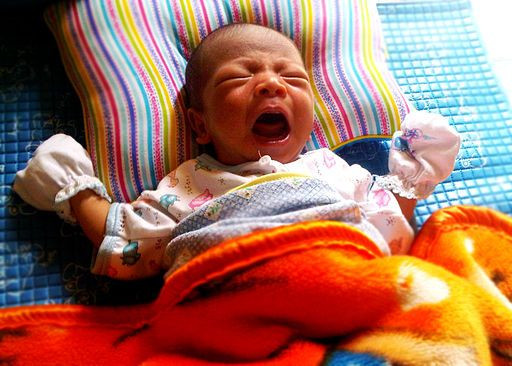UPDATE: 13-Page Suicide Note: Could Cynthia Wachenheim Been Suffering From Postpartum Depression? 4 Signs To Look For

UPDATE:
The 13-page letter from the 44-year-old New York lawyer who jumped out of an aparment window with her her son revealed a troubled motherhood and relationship with husband that motivated her to commit suicide.
Cynthia Wachenheim said no one believed her when her son suffered from seizures among other health conditions and he cried and slept often.
New reports said Wachenheim, a Manhattan State Supreme Court system's court attorney, never had a hard time socializing but since the arrival of their new baby, she took leave from work and faced deep depression while living in a upscale Harlem neighboorhood.
According to the New York State Department of Health, 10 to 20 percent of new mothers face postpartum depression while 1 to 2 per 1,000 new mothers suffer from postpartum pyschosis where psychiatric hospitilization is required.
On Wednesday, March 13, the mother holding her 10-month old son, Keston, plunged to her death out of an eight story apartment window in New York City. While the baby survived, many are asking why Wachenheim could commit such an "evil" act.
One neighbor witnessed a confrontation between Wachenheim and her husband, before she fell to her death.
"I came home, they were arguing," Christian Johnson told WPIX. "I actually stopped to listen, and I heard screaming and the baby was crying. He just kept saying why wouldn't you pick up the phone, why would you put that stress on me? Why wouldn't you pick up the phone, why, why? He was screaming, 'why, why'?"
Could Wachenheim have been suffering from a case of postpartum depression, or PPD?
Nearly eight to 19 percent of women actually report the symptoms of PPD, a condition that normally affects new mothers, according to the Centers for Disease Control and Prevention.
These extreme "baby blues," are normally observed for brutally long periods and could even develop into a rare form of psychosis after the child is born, experts from Mayo Clinic said.
The signs new mothers should recognize are:
- Trouble sleeping if you see the baby sleeping
- You feel disconnected from the baby
- Thinking someone or even you will try hurting or taking the baby away
- Feeling incapable of taking care of the child
Other types of prenatal depression and symptoms are posted on the Department of Health page.
One alarming symptom was reported in the case of Cynthia Wachenheim, 45. Before her death, she recognized the actions she was about to do was "evil" and voiced concern about how the baby was developing, reported CBS News.
In addition, suicidal tendencies are a common indicator of PPD. The New York mother wrote a 13-page suicide letter detailing her emotions and struggles, The Daily News even reported the mother diagnosed herself with postpartum depression on the last page.
"The note said she was not happy and she talked about what she planned to do," a source told The Daily News. The note continued saying Wachenheim told her husband, 'I love you. I'm making you suffer. You're going to think I'm evil,'" added the source.
While the baby remains in stable condition, his mental health could be at risk. The impacts of PPD hinders with childhood development. Psych Central News reported infants can show the minimal social engagements between their mothers and it could also impact their social skills in the future.



























